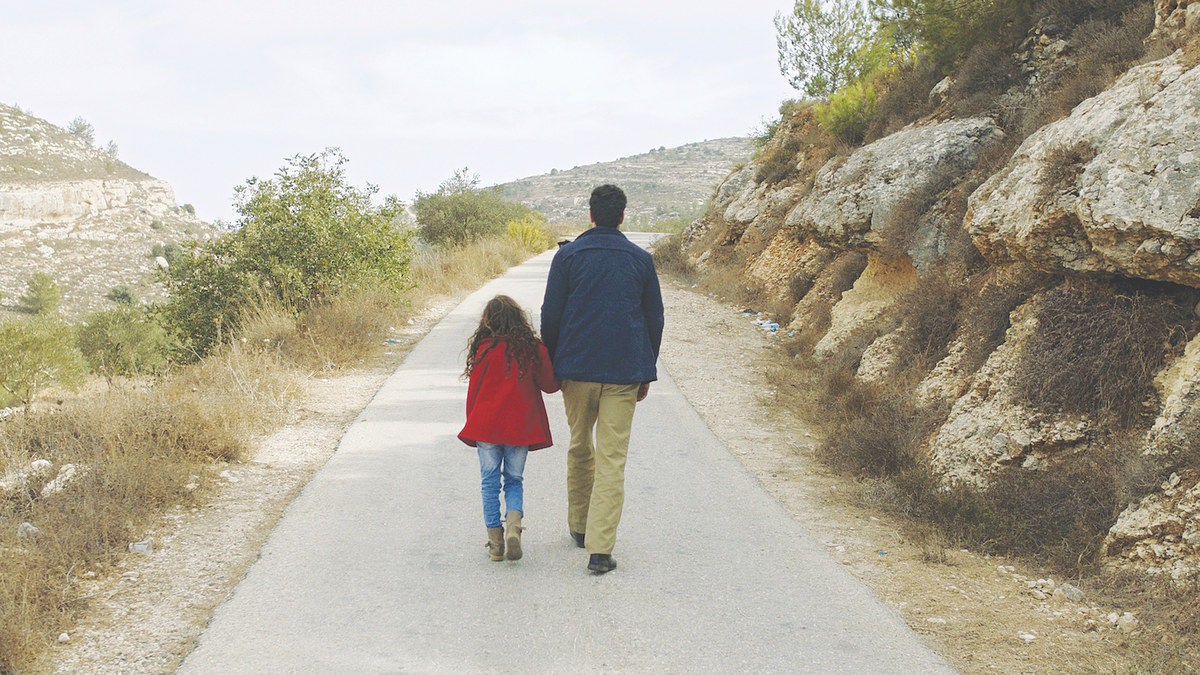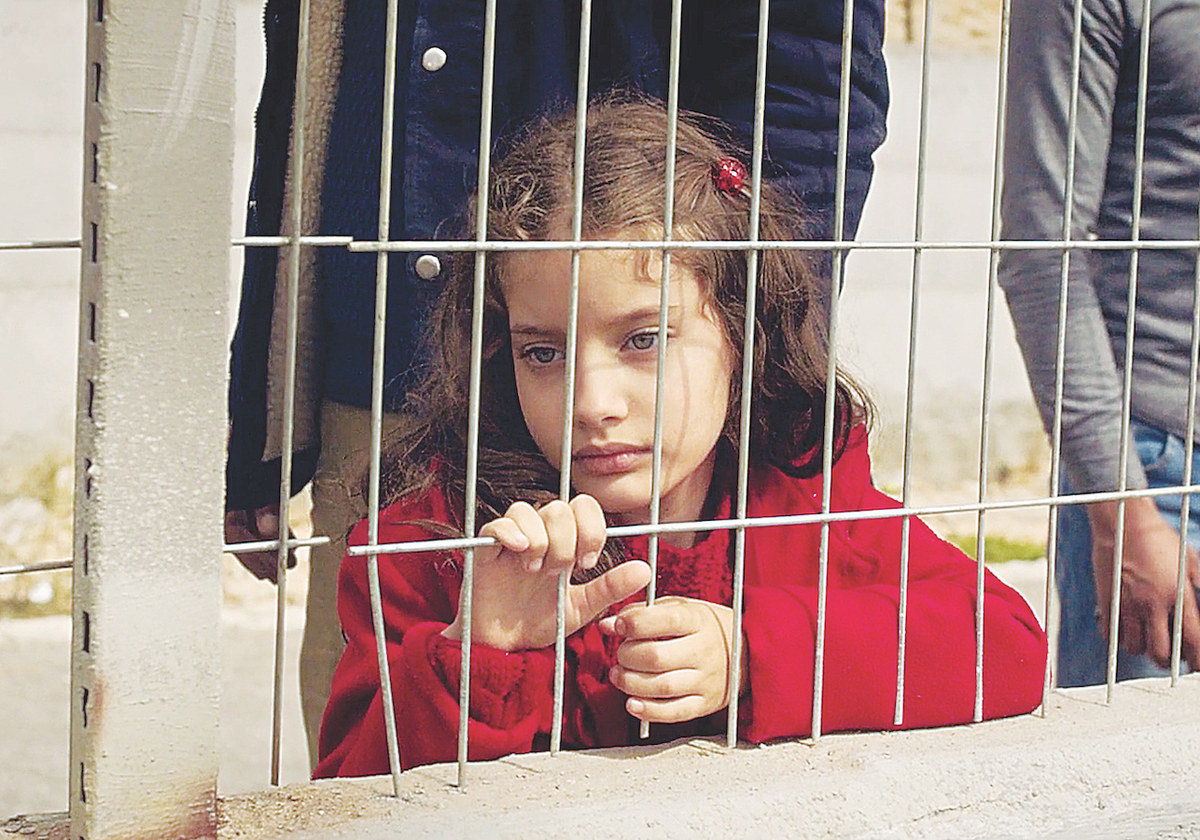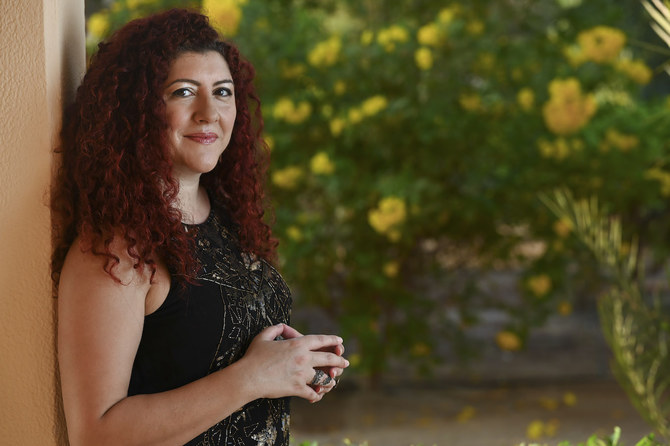BEIRUT: “It’s immensely surprising, and a step in the right direction for the Academy,” says
Palestinian-American filmmaker, writer and poet, Hind Shoufani, of this year’s list of Oscar-nominated short films. “They’re looking at diversity, women’s voices, underrepresented minorities; they’re paying attention to intense, conflict-driven and truthful stories.”
One such story was crafted by Shoufani and compatriot Farah Nabulsi. “The Present” — directed by Nabulsi — has already won a BAFTA in the British Short Film category and is nominated for Best Live Action Short Film at this month’s Academy Awards.

Shoufani believes that “The Present” owes much of its capacity to resonate with so many people to its authenticity (it was shot in the West Bank) and the simplicity of the story. (Iain Akerman)
Available on Netflix, “The Present” chronicles a day in the life of Yousef, compellingly depicted by renowned Palestinian actor Saleh Bakri, who sets out across the West Bank to buy a birthday gift for his wife. His 10-year-old daughter, played by the talented Mariam Kanj, joins him on a journey peppered with the injustice and humiliation emblematic of the daily plight of people living in the Occupied Territories.
Shoufani — a Fulbright scholar born to Palestinian parents in 1978 in Lebanon who has lived between Damascus, Amman, Beirut, New York and Dubai — explains that the partnership between Nabulsi and herself was “collaborative and fruitful.” The director supplied the film’s overarching themes and inspiring narrative threads and Shoufani fleshed them out in script and dialogue, introducing crucial plot elements, such as the daughter as a character.
“We had long sessions where we would go through different drafts of the script, talk through scenes and negotiate ideas,” says Shoufani, who also edited the film. “We ended up creating something that speaks to the heart of what an occupation takes away from people, in terms of agency and the ordinary ability to have freedom of movement and dignity.”

“The Present” is available on Netflix. (Supplied)
Shoufani believes that “The Present” owes much of its capacity to resonate with so many people to its authenticity (it was shot in the West Bank) and the simplicity of the story.
“Most people nowadays don’t want to sit for two hours and watch a highly nuanced, socioeconomic/class-driven, ethnographically correct, anthropologically dense film,” she says. “We don’t try to explain the past 70 years of Zionism, we don’t moralize or make grandstanding political statements... Instead, you have this ordinary man with a beautiful daughter whom anyone would only want to protect and love. Your natural human instinct is to want to keep this little girl safe and make sure she’s okay.”
And while Bakri’s Yousef is seemingly the protagonist, it is ultimately Kanj’s portrayal of Yasmine that steals the show and infuses the film with a powerful message. “She has a strong hand in how the story resolves. It’s about the power of youth and women. It’s inspiring but also heartbreaking. And it gives us an opportunity to appreciate the strength and determination of this 10-year-old kid.”

Mariam Kanj as Yasmine in Oscar-nominated short film “The Present.” (Supplied)
Shoufani passionately praises everyone involved, especially Palestinian producer Ossama Bawardi. “I introduced Ossama to Farah, and I couldn’t be happier for him — he put this crew together in the West Bank and did all he could to get this film out into the world. He really believed in it, and I want to give him a shout-out because he’s just awesome.”
Though “bewildered” and “astounded” by the industry’s acclaim for “The Present,” Shoufani is equally thrilled by many of her other endeavors, including two personal projects that are close to her heart.
One is “They Planted Strange Trees,” her upcoming film that documents “the various identities of the Christian minorities in the Galilee,” where Shoufani’s family is from. While being intrigued “to explore indigenous communities that people don’t really talk about much around the world,” the journey is also very personal. “It’s also about reconnecting with my family, and what it means to not belong, and yet very much belong there.”

“They Planted Strange Trees” is her upcoming film that documents “the various identities of the Christian minorities in the Galilee.” (Nick Zajicek)
The other is a four-part series that captures the stories of four female Arab poets and draws its working title — “Poeticians” — from a group that Shoufani founded. “We’ve filmed in five or six Arab countries for eight years, and I’m trying to create a purely video-art-driven essay on taking poetry into a visual language. I can’t imagine anything more beautiful than making films that are based on poems.”
In the short term, however, she is very much looking forward to seeing how “The Present” does at the Oscars.
“I think it is vital that global audiences see this film, and I’m proud to be part of that experience,” she says. “As Palestinians, we have an unending array of stories to bring to life, because of our diaspora, our fight, our complex history and our strength. And, yes, our profound beauty as people.”












